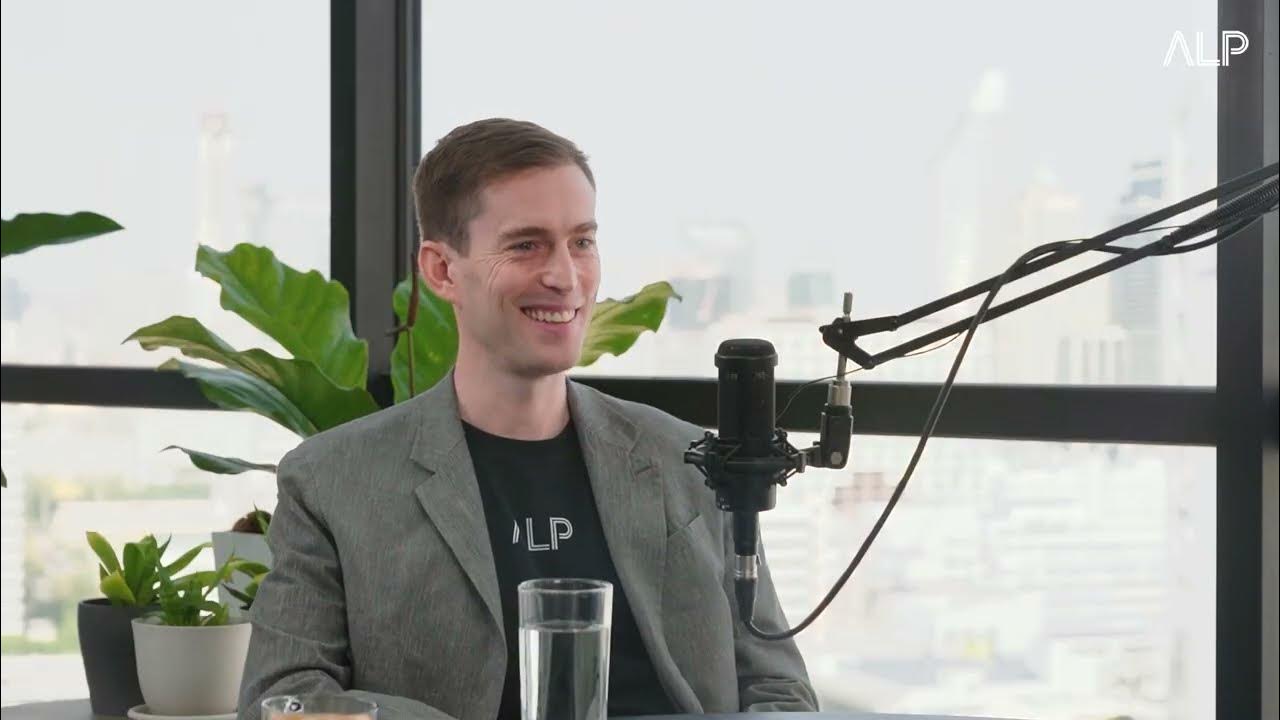OpenAI's Altman and Makanju on Global Implications of AI
Summary
TLDR本次对话深入探讨了AI技术的未来,尤其是如何应对监管和气候变化等挑战。Sam和Anna分享了他们对人工智能的远见,特别是AGI的潜力及其对全球社会的深远影响。他们讨论了AI对能源需求的推动作用,特别是在AI发展过程中如何促进清洁能源的投资。此外,他们还探讨了OpenAI的治理结构,强调了责任与合作的重要性,以及如何平衡技术进步与人类价值的共生发展。这是一次关于技术革新、责任与全球未来的深刻对话。
Takeaways
- 😀 政府对人工智能的接受度存在差异,但有些政府已经在积极探索如何利用AI技术的潜力。
- 😀 尽管许多投资者关注AI的商业回报,但OpenAI的团队和投资者的首要目标是推动人工智能技术的使命和社会福祉。
- 😀 OpenAI的治理结构存在挑战,包括非营利董事会与有限利润的安排,未来会进一步评估和调整。
- 😀 在OpenAI的管理层更替过程中,员工表现出了高度的承诺和对使命的支持,包括员工提出的全员辞职威胁。
- 😀 AI的发展可能带来巨大的能源需求,尤其是对计算资源和芯片的需求,但这也将推动新能源技术(如核聚变和更便宜的太阳能存储)的进步。
- 😀 AI对气候变化的潜在影响不容忽视,AI的能源消耗将迫使我们加速创新,以实现低碳和可持续能源技术。
- 😀 未来的AI技术将极大地改变全球经济和社会,AI能够加速科学研究并推动人类创造力的突破。
- 😀 在AI领域,跨国合作非常重要,企业和政府需要携手合作,共同应对技术发展带来的挑战和机遇。
- 😀 随着AI技术的迅猛发展,未来社会将与技术共同进化,政府和技术公司应在监管和创新之间找到平衡。
- 😀 虽然未来AI技术可能超越人类认知,产生无法预测的影响,但社会必须保持谦逊并继续合作,确保技术的安全与可控性。
Q & A
OpenAI为2024年选举做了哪些关于AI使用的新规定?
-OpenAI宣布禁止在政治竞选中使用ChatGPT,并引入加密水印技术,以确保AI生成图像的来源透明性。这些规定类似于Facebook、TikTok和YouTube的做法,但OpenAI依靠自家的安全系统来更好地执行这些规定。
OpenAI如何确保这些AI规定得到有效执行?
-OpenAI通过与各州选举秘书协会的合作,提供权威的投票信息,并依赖强大的监控工具和自家的技术来加大执行力度。此外,OpenAI的安全团队也为监管工作提供支持,确保政策落地。
AI技术在2024年美国大选中的角色和潜在风险是什么?
-AI的使用可能对2024年美国大选产生深远影响,尤其是在信息传播和政治广告中的应用。OpenAI承认有必要高度关注AI对民主选举的影响,并确保技术的发展不会被滥用,确保透明性和准确性。
OpenAI是否担心AI技术助长了社会的不平等和不满情绪?
-OpenAI认为AI可以作为生产力工具,提高工作效率,并在某些情况下帮助消除技术对部分群体的排斥。尽管AI可能导致某些职位消失,但它更多的是通过帮助人们更好地完成工作,而不是取代整个行业。
OpenAI如何看待与美国国防部的合作?
-OpenAI与美国国防部在网络安全和关键基础设施保护方面展开合作,开发开源软件工具。然而,OpenAI依然明确表示,禁止AI被用于开发武器或直接造成伤害的项目。
OpenAI如何处理与出版商的版权问题,特别是关于新闻和艺术作品的使用?
-OpenAI强调不会直接在新闻内容上进行训练,避免侵犯版权。对艺术家的担忧也得到关注,OpenAI正在探索如何让艺术家能从自己的风格中获益,而不是让他们的作品被随意利用。
OpenAI的治理结构和企业文化如何应对外部压力?
-OpenAI目前在治理结构上采用非营利董事会与有限盈利部门的双重结构。尽管面临外部和内部挑战,OpenAI的团队仍然致力于保持公司的使命,并且在重大决策上与投资者和员工共同努力。
OpenAI如何看待与政府监管的互动,特别是在技术快速发展的背景下?
-OpenAI认为,政府与技术企业之间的合作至关重要,特别是在AI安全和治理领域。尽管政府存在一定的 skepticism,OpenAI努力通过与各国政府的合作,推动更具包容性和透明度的AI发展。
AI技术的发展对全球气候变化有何影响,OpenAI如何应对这些挑战?
-AI的计算需求对能源的消耗提出了挑战,OpenAI认为要实现AI技术的可持续发展,必须在能源技术上取得突破,如核聚变或大规模太阳能存储。AI将推动对这些能源技术的投资,以支持未来的可持续发展。
AI如何影响就业市场?特别是AGI的出现是否会导致广泛的职位流失?
-AGI的出现可能会改变现有的就业模式,但OpenAI认为它更可能作为一种提高生产力的工具,而不是大规模替代人类工作。许多行业对代码等技能的需求仍然很高,AI可以让这些工作更高效,而非取代。
Outlines

此内容仅限付费用户访问。 请升级后访问。
立即升级Mindmap

此内容仅限付费用户访问。 请升级后访问。
立即升级Keywords

此内容仅限付费用户访问。 请升级后访问。
立即升级Highlights

此内容仅限付费用户访问。 请升级后访问。
立即升级Transcripts

此内容仅限付费用户访问。 请升级后访问。
立即升级浏览更多相关视频

Supply Chain and S&OP Challenges in 2024

DEEPSEEK DROPS AI BOMBSHELL: A.I Improves ITSELF Towards Superintelligence (BEATS o1)

Supply chain trends- What executive leaders expect in 2024

FULL REMARKS | Elon Musk And Nvidia's Jensen Huang Discuss AI And Furture Of Technology | N18G

Ilya Sutskever | The birth of AGI will subvert everything |AI can help humans but also cause trouble

ALP Podcast Episode 1: Supply Chain & Logistics Challenges and Opportunities with Carl Hemus

Maersk Trade Talk: Transportation Trends to Watch
5.0 / 5 (0 votes)